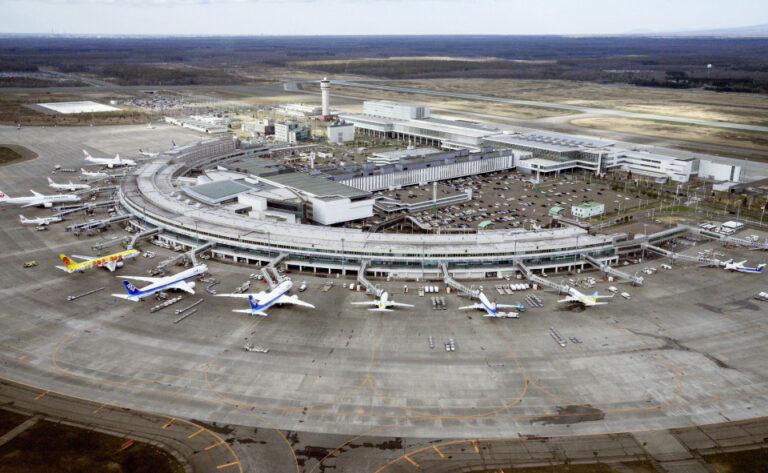Airports across Japan are facing a severe fuel shortage for commercial flights, making it difficult to increase the number of international flights or add new routes, industry and government sources said on Saturday.
The surge in air travel demand due to an increase in inbound tourists is exceeding the supply capacity of oil refineries, and labor shortages at the logistics stage are also exacerbating the problem.
As this could hinder efforts to revitalize the local economy through international tourism ahead of the summer vacation season, relevant ministries and agencies are assessing the situation and considering countermeasures.
According to Hiroshima Prefecture, foreign airlines have been forced to change plans to increase the number of Asian flights to and from Hiroshima Airport due to fuel shortages, and other airlines are also facing problems securing fuel for the summer and beyond.

A file photo taken in May 2024 shows New Chitose Airport in Hokkaido, northern Japan. (Kyodo News)
Airports in Hokkaido such as New Chitose, Asahikawa and Obihiro were also planning to increase flights and are therefore similarly affected by the fuel shortage.
Meanwhile, the operator of Sendai airport in northeast Japan said it was not affected, but airlines are concerned about fuel shortages.
According to local government officials, some airports in the Kansai, Shikoku, and Kyushu regions are also finding it difficult to increase flight numbers, and the National Association of Governors is considering requesting the national government to take action.
Domestic oil refiners supply passenger aircraft with fuel refined from crude oil under contract, but they are consolidating and streamlining their facilities in anticipation of a decline in demand for petroleum products in the medium to long term, making it difficult to increase production rapidly.
Selling imported fuel could be an option as a temporary measure, but there is a risk that this would not be profitable.
An oil refining company official said, “We are prioritizing increased demand from existing customers, and are unable to adequately accommodate new international routes or sudden increases in the number of flights.”
There is also a shortage of drivers and airport staff to transport fuel from refineries to airports and pump it into aircraft.
Related article:
Haneda Airport’s international passenger numbers to reach a record high of 19.1 million in fiscal 2023
Nearly 40% of skilled foreign workers choose to stay in Japan: OECD
Japan launches 40,000 yen tax cut to help inflation-stricken households

